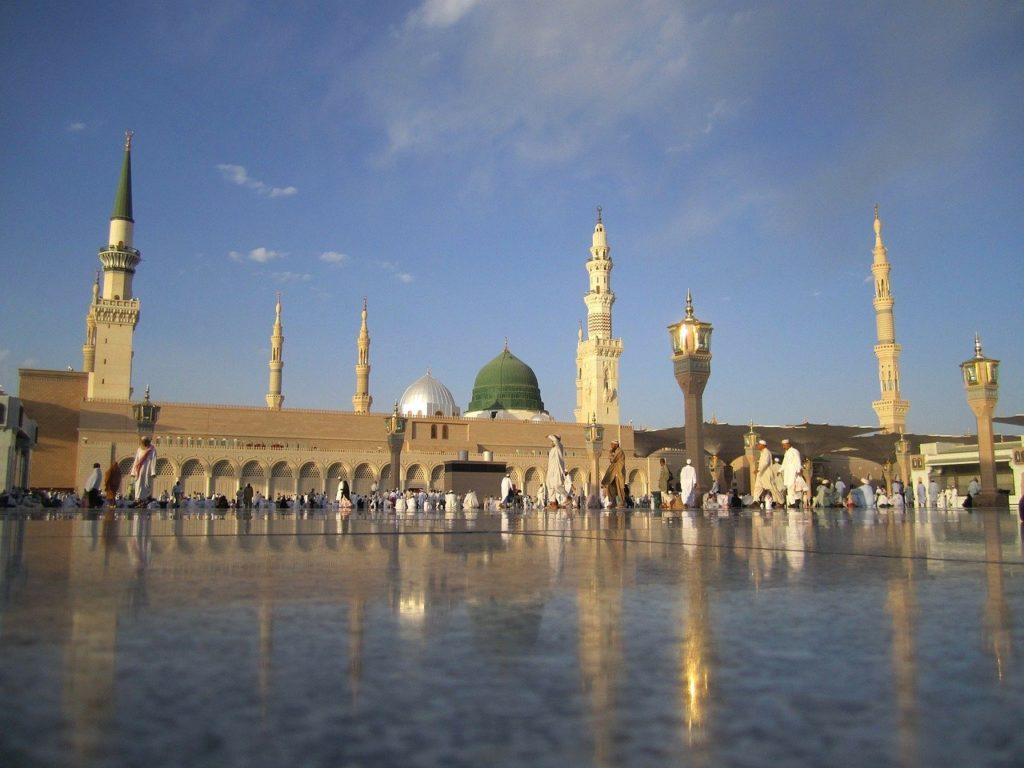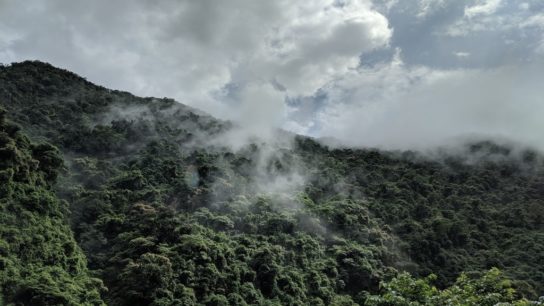The Kingdom of Saudi Arabia is looking to become the next sustainable tourism destination with the help of ambitious projects that combine luxury hospitality and environmental conservation and revitalisation efforts, and has a target of bringing in 100 million visitors per year by 2030.
—
Saudi Arabia has long been a place of intrigue and mystery.
For some, it’s a country to be wary of with its reputation for an indifferent approach to human rights, oppressive restrictions on women and fundamentalist Islamic beliefs that shape not only law and policy, but also the day-to-day lived experience of its citizens. For others, it’s one of the last frontiers of unexplored travel destinations; rich in cultural heritage and vast, majestic, natural landscapes.
Until recently, the country has been largely closed to tourists, with limited visas issued only to religious pilgrims, business people and expatriate workers.
However, in recent years, Saudi Arabia has been working behind the scenes on opening up the country to tourists as part of a broader plan to reduce the country’s economic dependence on oil.
There are some eye-watering figures associated with this move. According to Trade Arabia, the Ministry of Tourism is aiming to secure foreign investment of USD $133 billion in tourism by 2030. This goal is just one component of the country’s colossal Vision 2030 – “an ambitious vision for an ambitious nation”.
In September 2019, the Kingdom of Saudi Arabia announced the launch of a visa program, allowing nationals from 49 countries to visit for the first time as tourists. Women would now be allowed to visit the country unaccompanied and no longer required to wear an abaya or headscarf, which must be worn in public by Saudi women. No relaxations are proposed on the ban on alcohol though, which many tourism industry analysts regard as an essential part of the tourism package.
Saudi Arabia is unperturbed by the martini factor. Ahmed Al-Khateeb, Minister for Tourism, told Arab News in 2020 that Saudi Arabia has “a lot more to offer other than alcohol”.
You might also like: Can EcoTourism Save Coral Reefs?
So just how is Saudi Arabia planning on reaching its target of 100 million visitors per year by 2030 and situating themselves as the premier sustainable tourism destination?
Enter: tourism giga-projects. Not just one, but many.
The Red Sea Project, for example, is described as “a regenerative tourism destination along Saudi Arabia’s west coast, one of three giga-projects announced by His Royal Highness Crown Prince Mohammad bin Salman bin Abdulaziz Al-Saud in 2017”.
Set to be one of the world’s most ambitious tourism and hospitality projects, The Red Sea Project is packing some impressive punches when it comes to environmental claims.
On an archipelago of 90 islands, mountains, sand dunes and dormant volcanoes spanning an area the size of Belgium, The Red Sea Development Company is hard at work building 50 luxury hotels, an international airport and a range of leisure facilities.
At face value, it doesn’t sound like it has the makings for a sustainable tourism destination.
But The Red Sea Project is aiming to go a step further than simply counterbalancing any negative environmental impacts it might have. Instead, it is aspiring to a new standard termed “regenerative sustainability”, which is all about enhancing the environment and leaving it better than you found it.
The project aims to achieve a 30% net positive conservation impact by 2040 through measurable improvements in biodiversity. Set to be the largest no-take marine protected area in the country covering 5,373 sq km, the goal is a 30% increase in fish biomass, a 30% increase in mangroves, sea grasses and native land vegetation, and a 30% increase in the abundance of coral reefs.
Former CEO, John Pagano, has said “The aim is to become a global reference for ecotourism, sustainable development, conservation and, more importantly, regeneration.”
The concept of regenerative travel centres on actions and processes that restore, revitalise and renew both ecosystems and communities in tourism destinations. Given the significant impacts travel can have on people and lands, Saudi Arabia’s regenerative approach to its tourism giga-projects is noteworthy.
Other projects under development include Soudah in the Asir region, which is set to become a luxury mountain destination with immersive cultural experiences and natural landscapes in newly created protected areas. Similarly, AMAALA on Saudi Arabia’s northwestern coast is aiming to create “transformative personal journeys” centered around arts, wellness, culture and conservation.
But what about the ethics of visiting a country like Saudi Arabia? Visitors who value regenerative travel are also likely to be conscious consumers and decision makers. Is it morally problematic to visit a country on principle because of its laws, beliefs or treatment of vulnerable groups?
This idea has parallels with the act of boycotting, a tactic commonly employed by consumers or activists to make a political statement against products or companies they believe to be unethical. Not-for-profit organisations face similar ethical problems when considering whether to accept donations from corporations in objectionable industries.
Should the Cancer Council accept donations from tobacco companies? The Diabetes Society from Coca Cola?
In fact, the British Museum was criticised for this recently. In February 2020, climate activists brought a trojan horse onto the site in central London to protest the institution’s sponsorship deal with oil giant, BP. The theatrical protest group ‘BP or not BP?’ wrote a letter to the museum’s administration. It said, “Hundreds of people have helped to crowdfund this horse because they feel so strongly that the museum should not be promoting and giving legitimacy to an oil company when we are in the midst of a climate emergency”.
Does partnering with some organisations, or buying some products – or visiting some countries – make you complicit in their crimes? Or does engaging on a deeper level provide opportunities to learn, understand and even influence the way things are done?
It’s fair that there are sceptics but given the scale and budget of Saudi Arabia’s sustainable tourism giga-projects there is an opportunity for the country to influence the development of cultural and ecotourism-based destination travel globally. Countries in the Middle East place high value on innovation and do not shy away from stretch-goals, so it will be interesting to see what emerges.
In the end, the biggest problem for the travel industry might be the opposite of what it’s used to – that is, how will stakeholders in the travel industry scale down any lessons learned from Saudi Arabia’s giga-projects so that changes can be made in other contexts without the luxury of billion-dollar budgets.
Featured image by: Pixabay

















